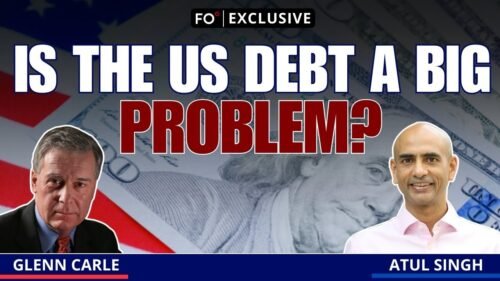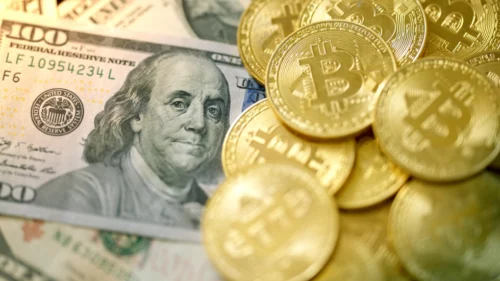The GENIUS Act, a landmark law that can potentially reshape the relationship ordinary people have with money — how it moves in and out of their wallets, how bills get paid and what kind of cash shows up in their bank accounts — was passed in Washington, DC, on July 18, 2025. It triggered a familiar media storm: some voices cheerleading, others flashing flaming red STOP signs. TV anchors and pundits lobbed terms like stablecoins, blockchains and crypto. The coverage may have delighted subject matter experts, but it did little to inform or reassure the rest of us.
Key guardrails established by the GENIUS Act
What’s in it for me? That’s the question ordinary people usually ask in times of disruptive change. That’s what they would like to know now in plain English — no technobabble — how the GENIUS Act is likely to affect their day-to-day lives.
The first question many people usually ask: “Why do we need the GENIUS Act? What’s broken? What’s the GENIUS Act trying to fix?” Let’s focus on improvement instead of what is broken and actively ask: Can modern digital technology enhance the everyday experience people have with money? The answer is YES.
Currently, numerous potholes and speed breakers exist that make money move too slowly, too expensively and pass through too many hands (intermediaries), making life harder and more stressful for both individuals and institutions.
Consider the following examples:
- Direct deposits can take two to three days to clear.
- Slow payments trigger overdrafts and late fees — roughly $15 billion a year across the US.
- Millions rely on payday loans because wages land too slowly to meet immediate needs.
It is these infrastructure weaknesses that the GENIUS Act wishes to improve. It aims to smooth the road so money can move faster, cheaper and with fewer intermediaries — across town and oceans.
Before elaborating on the nuts and bolts of the new law, an analogy — shipping of documents and packages — will be instructive. Decades ago, people and businesses would ship documents, such as forms and contracts, by courier or the US Mail. Then FedEx arrived: same documents, faster shipping, better tracking, fewer handoffs. You might say, “But FedEx costs more!” True in postage — but faster decisions (loans, hires and deals) often resulted in greater benefits than the increase in shipping fee.
Then came digital signatures — DocuSign, Acrobat Sign. No paper at all. You can send, sign and return documents in minutes. Whole processes — mortgages, hiring and insurance claims — sped up dramatically.
The GENIUS Act aims for a similar transformative leap in financial matters. How? By specifying a set of rules and regulations for a cryptocurrency called stablecoins — digital tokens designed to hold a steady $1 value. Think of them as digital dollars. Stablecoins already exist; the GENIUS Act aims to bring them under a regulated umbrella, enabling them to be trusted and used more widely in everyday monetary transactions.
Key guardrails the new law stipulates are:
- Full reserves: Issuers must back every stablecoin with safe assets, such as cash or short-term US Treasury bills, held in segregated accounts. (Conceptually similar in spirit to deposit protection; not the same as the Federal Deposit Insurance Corporation (FDIC) insurance.)
- Licensed issuers only: Only approved, regulated entities may issue US stablecoins. These include banks, payment platforms and large retailers that meet regulatory standards.
- Regular attestations & audits: Public, independent reporting — monthly disclosures and annual reviews — so users know the backing is real.
- Compliance & safeguards: Antifraud, antimoney laundering and sanctions screening rules apply — closing the door on underground operators introducing counterfeit, unbacked tokens.
Bottom line: The GENIUS Act doesn’t intend to replace the existing financial playbook; it aims to add a new set of regulated rails for stablecoins — digital dollars — to facilitate faster, cleaner and more transparent transactions.
The potential future of stablecoins in everyday life
People won’t need to download a crypto wallet tomorrow. Changes will roll out gradually, often behind the scenes. But over time, here’s how GENIUS-compliant stablecoins could show up in daily life.
- Getting paid faster: Freelancers, gig workers and hourly employees may start seeing instant pay at the end of a shift, rather than waiting a week or two. Employers could pay in dollars that arrive through stablecoin rails in seconds, not days.
- Timely bill paying: Rent is due on Monday, but payday is on Tuesday. Today, that gap risks late fees. With near-instant settlement — even on weekends — payments can clear when sent, not when banks batch process them.
- Sending money (across town or borders): Helping a parent, child or student abroad — transfers that once took three days, and $25 in fees, could arrive in minutes for pennies. Domestic peer-to-peer transfers could also become simpler and faster; plumbers could receive money in hand just minutes after completing the job.
- Fewer overdrafts & surprise fees: When incoming money clears slowly, outgoing payments bounce. Faster clearing reduces overdrafts, returned payments and cascading penalty fees, thereby eliminating the need for short-term, high-cost loans.
- Access without a traditional bank: Millions of US households are unbanked or underbanked. A regulated stablecoin wallet — operating on mobile platforms — could let people pay, save and receive funds without a checking account at a big bank.
Change will breed anxiety and concerns, regardless of the benefits of the new law. The three most common questions people are likely to ask are:
Q1: Will I be forced to switch? No. Cash, checks, debit cards and today’s bank accounts will remain. Think email or online bill pay. Unless we want to name a specific agency that is doing the forcing, it doesn’t quite add up when people force others. On day one, people didn’t have to use them. The vast majority stood on the sidelines and embraced them only when they became familiar and easier.
Q2: Is this safe, or another crypto scam? That’s precisely what the new law aims to prevent. Under the GENIUS Act, only regulated, licensed issuers can offer US stablecoins. They must maintain full reserves, publish disclosures and undergo regular audits. This isn’t “airy fairy internet money”; they are regulated digital dollars with receipts.
Q3: Will this cost me more? Generally, no. The intent is to reduce frictions and fees in the system. Some services — such as instant payroll or premium settlement — may incur small, visible fees (like paying for overnight delivery). However, people will be aware of the additional costs upfront; they won’t be surprised by them later.
Here’s what people should keep in mind:
- The GENIUS Act is new; implementation will take time.
- People will be able to rely on existing money habits — paper checks, plastic cards and direct deposit.
- The new law is about adding options, not removing the monetary plumbing that ordinary people depend on.
We’ve already lived through financial transitions: ATMs, debit cards, online bill pay, mobile banking and tap-to-pay. For a while, people treated each transition with suspicion before adopting it. Stablecoins are likely to follow a similar curve. People may resist at first. Then, someday soon, they might use stablecoins to split a dinner tab, pay a contractor or receive part of their paychecks without demurring.
And before we realize it, since art and life are intertwined, the next Capital One advertisement might just ask with a mischievous wink:
“What’s in your wallet? Stablecoins.”
Or American Express could tweak and revive its old classic:
“Stablecoins: Don’t leave home without them.”
And if a large cross-section of ordinary people smile sheepishly, it won’t be just at the witticism of the ads, but because they had once vowed, “No sirree Bob, no stablecoins for me.”
[Liam Roman edited this piece.]
The views expressed in this article are the author’s own and do not necessarily reflect Fair Observer’s editorial policy.
Support Fair Observer
We rely on your support for our independence, diversity and quality.
For more than 10 years, Fair Observer has been free, fair and independent. No billionaire owns us, no advertisers control us. We are a reader-supported nonprofit. Unlike many other publications, we keep our content free for readers regardless of where they live or whether they can afford to pay. We have no paywalls and no ads.
In the post-truth era of fake news, echo chambers and filter bubbles, we publish a plurality of perspectives from around the world. Anyone can publish with us, but everyone goes through a rigorous editorial process. So, you get fact-checked, well-reasoned content instead of noise.
We publish 3,000+ voices from 90+ countries. We also conduct education and training programs
on subjects ranging from digital media and journalism to writing and critical thinking. This
doesn’t come cheap. Servers, editors, trainers and web developers cost
money.
Please consider supporting us on a regular basis as a recurring donor or a
sustaining member.
Will you support FO’s journalism?
We rely on your support for our independence, diversity and quality.











Comment